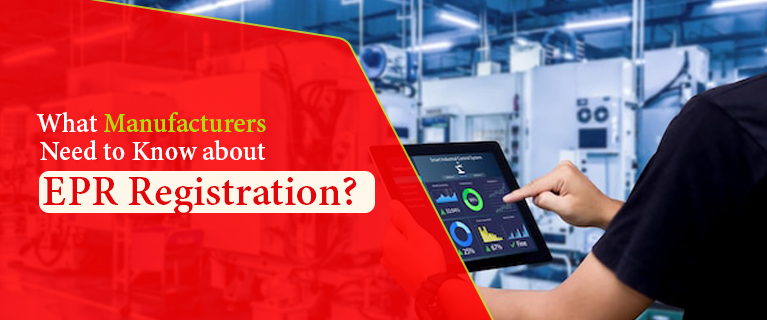How To Obtain EPR Registration For Imports?
Extended Producer Responsibility (EPR) registration for imports holds significant importance in today's global effort to promote environmental sustainability and responsible waste management. As the world grapples with the challenges of increasing waste generation and its impact on ecosystems, EPR emerges as a crucial mechanism to address the growing concerns.
EPR places the onus on producers to manage the entire lifecycle of their products, from production to disposal. By obtaining EPR registration for imports, businesses demonstrate their commitment to minimizing the environmental footprint of their goods. This not only contributes to reducing the accumulation of waste in landfills and oceans but also encourages the adoption of greener practices throughout the supply chain.
EPR registration encourages businesses to adopt circular economy principles , where products are designed for durability, repairability, and recyclability. This shift in mindset fosters innovation in product design, packaging, and materials, leading to the creation of more sustainable and environmentally-friendly offerings. Furthermore, EPR registration enhances a company's reputation as a responsible corporate citizen, reflecting positively on its brand image and strengthening consumer trust.
Obtaining Extended Producer Responsibility (EPR) registration for import involves several steps to ensure compliance with environmental regulations and waste management responsibilities. EPR is a framework that holds producers responsible for the entire lifecycle of their products, including proper disposal and recycling. Here's a simplified guide to obtaining EPR registration for imports:
1. Understand EPR Regulations: Familiarize yourself with the EPR regulations in your country. Each jurisdiction might have specific guidelines and requirements for EPR registration, so it's crucial to know the rules that apply to your situation.
2. Identify the Regulating Authority: Determine the relevant government agency responsible for EPR registration. This could be an environmental or waste management authority.
3. Preparation of Documents: Prepare the necessary documents for registration. This might include details about the imported products, their composition, packaging materials, and estimated volumes. You may also need to provide information about your company's legal status, ownership, and contact details.
4. Registration Application: Submit the registration application to the designated regulating authority. This could be done online or through a physical application process, depending on the system in place.
5. Payment of Fees: Pay any required registration fees as stipulated by the authority. The fees might vary based on the type and volume of products you are importing.
6. Documentation Submission: Provide any additional documentation that the authority requests to support your application. This could include proof of your commitment to fulfilling EPR obligations, such as setting up collection and recycling systems.
7. Evaluation and Approval: The regulating authority will evaluate your application and supporting documents. They will assess whether your plans for waste management and recycling meet their criteria.
8. Issuance of Registration: If your application is approved, the authority will issue you an EPR registration certificate. This certificate acknowledges your commitment to fulfilling your extended producer responsibility.
9. Compliance and Reporting: Once registered, you'll need to adhere to the EPR regulations, which may involve setting up systems for the collection, recycling, and proper disposal of the products you import. Regular reporting on the quantities of products imported and managed will likely be required.
10. Renewal and Maintenance: EPR registration is not a one-time process. You'll need to renew your registration periodically as per the regulations and continue to meet your waste management obligations.
Read Also This - Simplified Steps to Implement EPR CertificationBy participating in EPR programs and obtaining registration for imports, businesses actively engage in the transition towards a more sustainable and resilient future. They play a vital role in minimizing waste, conserving resources, and contributing to a healthier planet for current and future generations. EPR is a proactive step that aligns business interests with environmental responsibility, making it a cornerstone of sustainable business practices in the modern world. Seeking guidance from professionals who specialize in environmental compliance and waste management can be beneficial to ensure a smooth and compliant EPR registration process.




Comments
Post a Comment